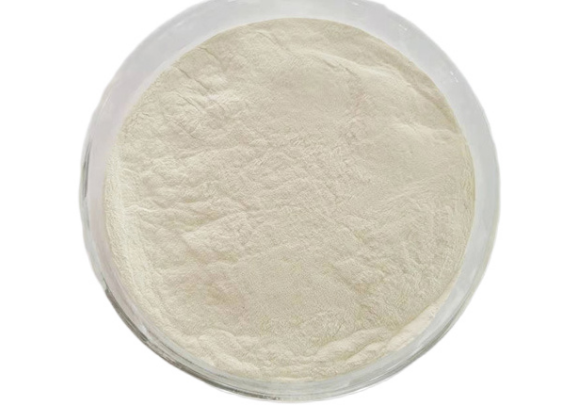Ferrous Sulfate Monohydrate Uses for Animals Feed and Plant
Ferrous sulfate monohydrate is commonly used in animal feed and plant applications due to its iron content and other beneficial properties. Both animals and plants require iron for proper growth and development, and ferrous sulfate monohydrate serves as a cost-effective and readily available source of iron for these purposes. Here's a detailed look at its use in animal feed and plant applications:
Use of Ferrous Sulfate Monohydrate in Animal Feed:
1. Iron Supplementation:
Iron is an essential mineral for animals, playing a vital role in various physiological processes, including the formation of hemoglobin in the blood and oxygen transport. Iron deficiency in animals can lead to anemia, resulting in reduced energy levels, weakness, and poor growth. Ferrous sulfate monohydrate is widely used as an iron supplement in animal feed to prevent and treat iron deficiency anemia.
2. Improved Growth and Performance:
By providing the necessary iron supplementation, ferrous sulfate monohydrate promotes improved growth and performance in livestock and poultry. Animals with adequate iron levels are better able to utilize nutrients from feed, leading to increased weight gain, better feed conversion rates, and overall better health.
3. Enhanced Reproductive Performance:
Iron is essential for proper reproductive function in animals. Adequate iron supplementation through ferrous sulfate monohydrate helps support healthy pregnancies, improves fertility, and reduces the risk of reproductive disorders in breeding animals.
4. Prevention of Iron Deficiency in Young Animals:
Young animals, especially piglets and calves, are particularly susceptible to iron deficiency. Their iron requirements often exceed what they can obtain from milk or other sources. Ferrous sulfate monohydrate is commonly added to their feed to ensure they receive sufficient iron for healthy growth and development.
5. Easy Administration:
Ferrous sulfate monohydrate is available in various forms, including powders, granules, and chelated forms. These different formulations allow for easy administration in animal feed, whether added directly to the feed or incorporated into premixes or mineral supplements.
6. Bioavailability:
Ferrous sulfate monohydrate offers excellent bioavailability, meaning that the iron it provides is easily absorbed and utilized by animals. This ensures that the iron reaches its intended target within the animal's body, optimizing its benefits.
7. Cost-Effective Source of Iron:
Ferrous sulfate monohydrate is a cost-effective source of iron for animal feed. Its availability and relatively low cost make it a practical choice for ensuring iron sufficiency in livestock and poultry diets.
Use of Ferrous Sulfate Monohydrate in Plant Applications:
1. Soil Amendment:
In alkaline or calcareous soils, iron may become less available to plants, leading to iron deficiency chlorosis. Ferrous sulfate monohydrate is used as a soil amendment to address iron deficiency in plants. It provides an easily absorbable form of iron, allowing plants to take up the essential nutrient and restore healthy growth.
2. Correction of Yellowing Leaves:
Iron deficiency in plants often manifests as interveinal chlorosis, where the tissue between leaf veins turns yellow while the veins remain green. Adding ferrous sulfate monohydrate to the soil or as a foliar spray corrects this yellowing, promoting greener and healthier foliage.
3. Promotes Photosynthesis:
Iron is a crucial component of chlorophyll, the pigment responsible for photosynthesis in plants. By providing iron, ferrous sulfate monohydrate supports robust photosynthesis, leading to better plant growth and improved energy production.
4. Supports Plant Metabolism:
Iron is involved in various enzymatic reactions within plants, supporting essential metabolic processes. Its presence helps in the synthesis of amino acids, enzymes, and other biomolecules necessary for plant growth and development.
5. Enhanced Nutrient Uptake:
Iron is essential for the uptake and transport of other nutrients within plants. Adequate iron levels improve nutrient uptake, ensuring that plants can access and utilize essential minerals for their overall health.
6. Rapid Color Improvement:
In horticultural applications, such as turfgrass management or ornamental plant care, ferrous sulfate monohydrate is commonly used to quickly improve the green color of plants showing signs of iron deficiency chlorosis.
7. Algae Control in Ponds:
Ferrous sulfate monohydrate can be used in pond management to control algae growth. It works by causing algae cells to coagulate, sink, and die off, effectively reducing algae populations in the water.
8. Easy Application:
Ferrous sulfate monohydrate can be applied to soil directly or as a foliar spray, making it easy to use for plant applications. For soil application, it can be mixed into the soil or dissolved in water and applied as a drench or through irrigation systems.
9. Safe for Plants:
When used as directed, ferrous sulfate monohydrate is safe for most plants. However, excessive application or incorrect use can lead to iron toxicity and should be avoided.
In both animal feed additives and plant applications, it is essential to follow recommended guidelines and dosage rates when using ferrous sulfate monohydrate. Proper application ensures its effectiveness while minimizing the risk of adverse effects. Additionally, periodic soil or plant tissue testing can help monitor iron levels and adjust supplementation accordingly for optimal results. Whether used for promoting healthy growth in animals or correcting iron deficiency in plants, ferrous sulfate monohydrate continues to be a valuable and versatile resource in agricultural and horticultural practices.
If you want to know more information about Ferrous Sulfate Monohydrate, please contact us. We will provide professional answers.



